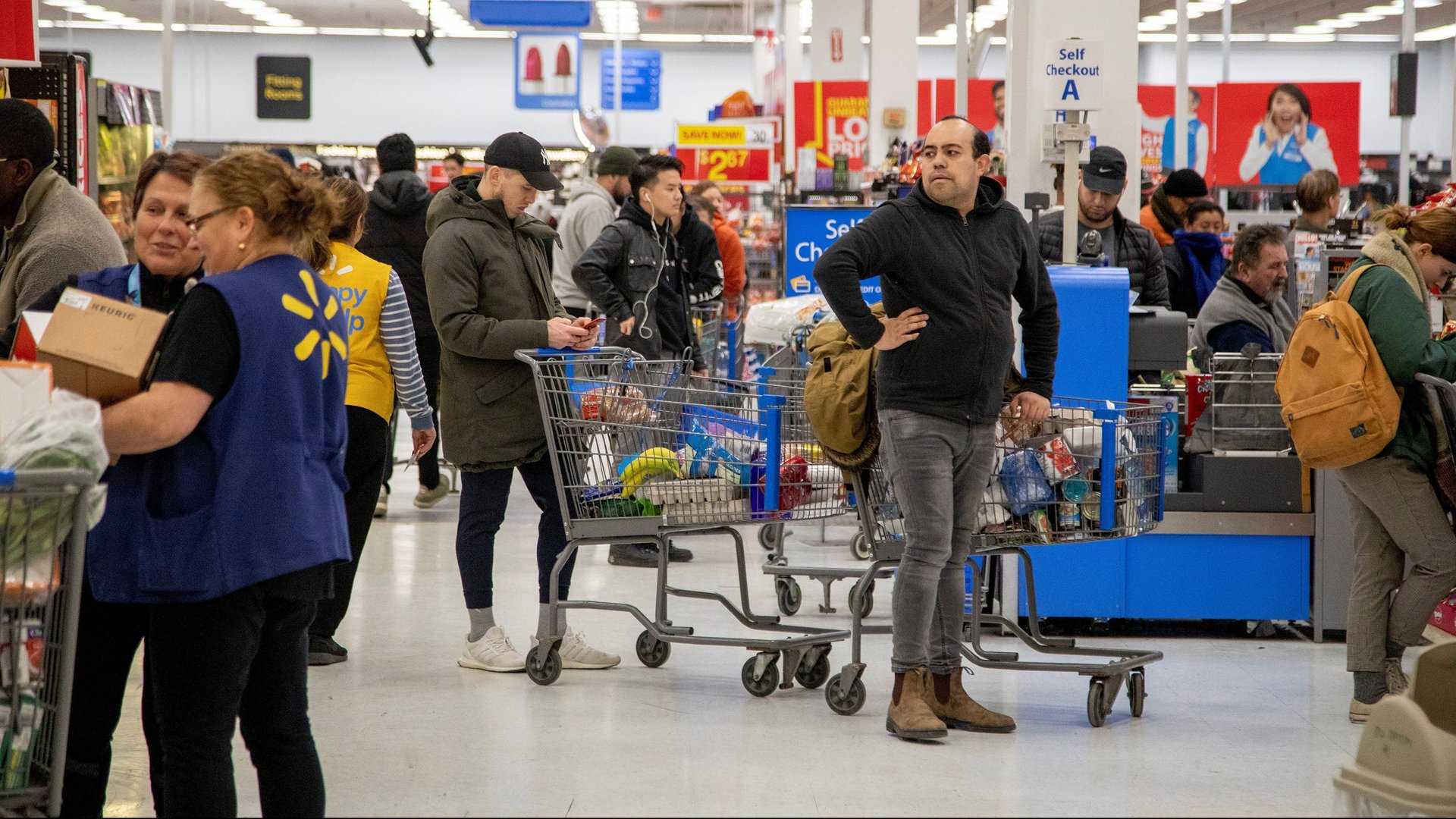Working at a grocery store is now a hazardous occupation
Walmart has announced a change in its face mask policy for employees. Once optional, masks will now be mandatory for workers in its stores, distribution and fulfillment centers, and in its corporate offices beginning Monday. The company will supply masks to employees who don’t have their own.


Walmart has announced a change in its face mask policy for employees. Once optional, masks will now be mandatory for workers in its stores, distribution and fulfillment centers, and in its corporate offices beginning Monday. The company will supply masks to employees who don’t have their own.
The new policy comes two weeks after the US Centers for Disease Control and Prevention (CDC) updated its guidance on face masks, recommending “cloth face coverings in public settings where other social distancing measures are difficult to maintain (e.g., grocery stores and pharmacies).” It’s arguably long overdue, and reflects the hazards faced by grocery workers in the Covid-19 pandemic.
Because grocery stores are among the essential businesses that have carried on during the pandemic, their workers are in constant proximity of potentially sick shoppers. While federal health authorities have debated the best ways to keep the public safe, companies have been left to devise their own policies. So far, they’ve varied widely, often leaving workers without protective equipment in circumstances where social distancing is impossible. Meanwhile, employees in workplaces from Amazon warehouses to local stores have been getting sick.
The situation is taking its toll. In the US more than 40 workers at stores such as Walmart, Kroger, and Trader Joe’s, as well as at meatpacking plants and food processing facilities, have died of Covid-19, according to the Washington Post.
On April 13, the United Food and Commercial Workers International Union (UFCW), which calls itself the largest food and retail union in the US, estimated the disease had claimed the lives of 30 of its members. Another 3,000 had had to call out sick from work after displaying symptoms or having other related issues. “The coronavirus pandemic represents the greatest health and safety crisis that America’s grocery and food workers have ever faced,” UFCW president Marc Perrone said.
The issue isn’t just about companies putting workers at risk. Included in the UFCW’s April 13 press release were results of a survey of 5,000 members that found 85% said customers weren’t practicing social distancing, though more states have at least begun requiring shoppers to wear masks.
“Grocery workers are risking their safety, often for poverty-level wages, so the rest of us can shelter in place,” John Logan, director of labor and employment studies at San Francisco State University, told the Washington Post. “The only way the rest of us are able to stay home is because they’re willing to go to work.”
In the US a disproportionate share of grocery workers are black and Latino—both groups have been dying at higher rates during the outbreak.
Some employees, deciding the low pay and risky environment don’t add up, are leaving their jobs. Meanwhile Walmart, Kroger, Amazon, and others are frantically hiring tens of thousands of workers to meet surging demand.
The companies have also been implementing more measures to protect workers. Kroger, for instance, has limited its stores to being filled to just 50% capacity to make social distancing easier. Amazon, owner of Whole Foods, has been distributing protective equipment to employees and conducting temperature checks, now with thermal cameras according to employees who spoke to Reuters.
Every measure helps, though many have come later than they should have.